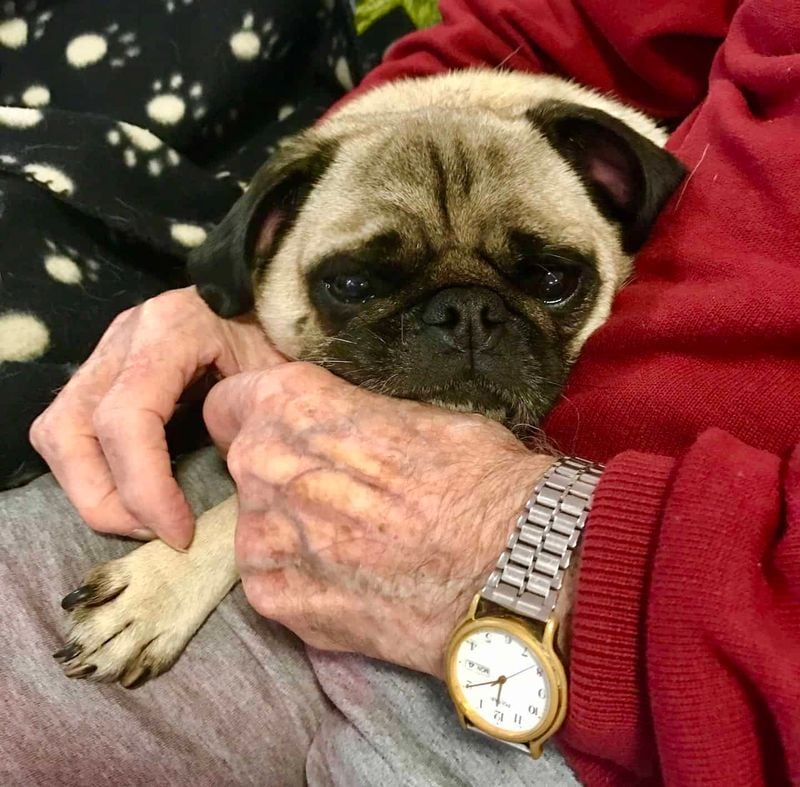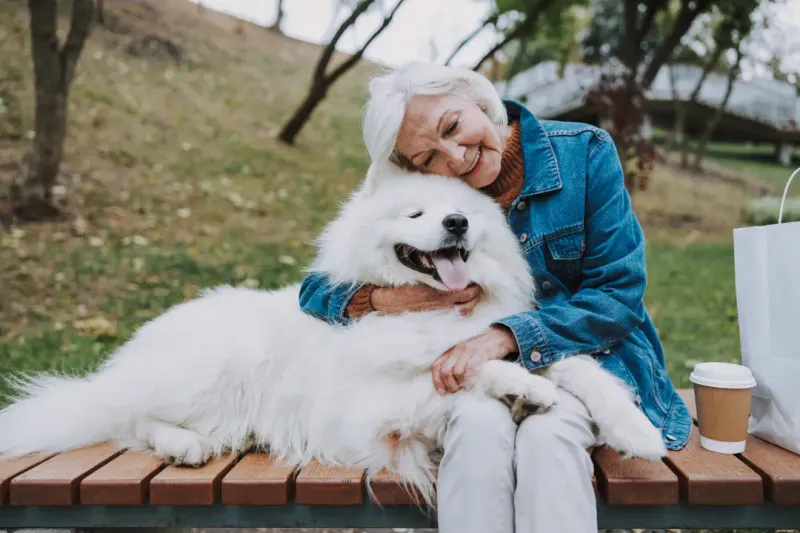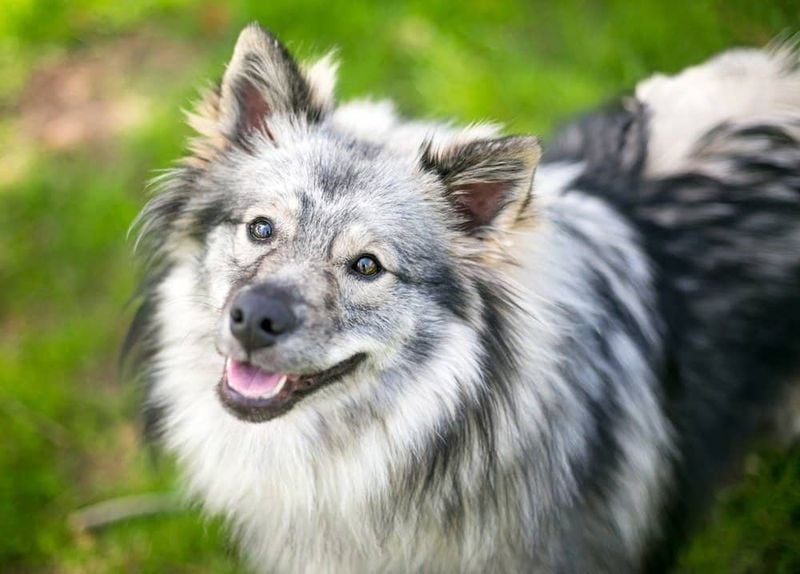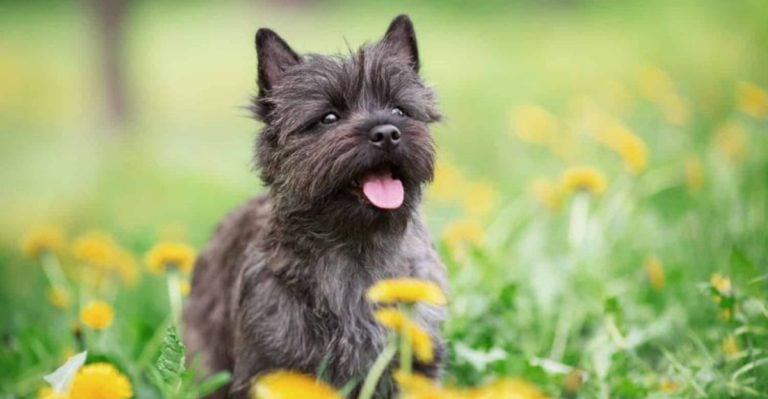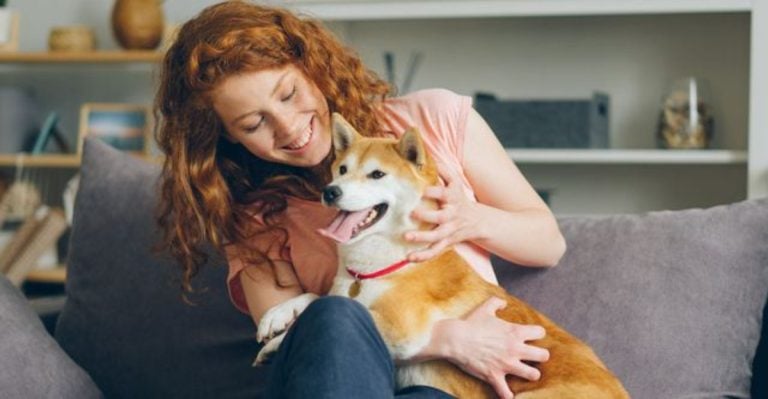Feeling Down? These 25 Comforting Dog Breeds Are Basically Furry Therapists
When life gets heavy, sometimes the best therapy doesn’t come from words—it comes from a warm, furry friend curling up beside you. Dogs have an uncanny ability to sense our moods, offering comfort, companionship, and unconditional love without asking for anything in return. Whether you’re dealing with stress, grief, anxiety, or just the everyday blues, the right dog can be a soothing presence that helps you feel a little more grounded—and a lot more loved.
But not all dog breeds offer the same kind of emotional support. Some pups are born snugglers, eager to be your shadow and soak up every moment by your side. Others have a calm, intuitive nature that makes them excellent emotional companions, simply resting their head in your lap at the exact moment you need it most. And then there are the joyful goofballs—those silly, lovable dogs who never fail to make you smile with their antics and affection.
From loyal retrievers to gentle giants to pint-sized cuddle bugs, we’ve rounded up the ultimate list of dog breeds that provide comfort like no other. These pups aren’t just pets—they’re mood-boosting, tail-wagging therapists who specialize in healing hearts and lifting spirits.
Whether you’re considering adopting a new four-legged friend or just daydreaming about the kind of pup who could brighten your bad days, this list is filled with breeds known for their emotional intelligence, devotion, and comforting nature. So, grab a cozy blanket, maybe a box of tissues, and get ready to meet 25 of the most emotionally supportive dog breeds out there. Because sometimes, the best kind of therapy comes with a cold nose and a wagging tail.
1. Golden Retriever
Sunshine in dog form, Golden Retrievers seem to radiate warmth from the inside out. Their gentle eyes track your emotions with uncanny precision, often appearing at your side before you even realize you’re feeling down.
Famous for their emotional intelligence, these dogs instinctively offer a paw or furry shoulder when tears flow. They balance playfulness with calm understanding, knowing exactly when to distract you with silly antics or simply rest their head on your lap.
Their patient demeanor makes them excellent therapy dogs in hospitals and nursing homes, where their golden presence brings comfort to countless people.
2. Labrador Retriever
Labs greet each day with boundless optimism that’s genuinely contagious. Their enthusiastic tail wags and happy prancing can crack even the most stubborn bad mood, making them natural mood elevators.
Unlike some sensitive breeds, Labs bring a refreshing emotional resilience to your household. They’re equally ready for adventure or quiet companionship, adapting their energy to match your emotional needs.
Many depression and anxiety sufferers report that their Lab’s predictable, steady temperament provides an anchoring effect during emotional storms. Their intuitive nature helps them recognize when you need space versus when you need slobbery kisses.
3. Cavalier King Charles Spaniel
Royal companions with velvet ears and melting brown eyes, Cavaliers possess an almost supernatural ability to detect emotional distress. They’ve mastered the art of the therapeutic cuddle, nestling perfectly against your body like a living, breathing heating pad.
Historical records show these dogs comforted royalty through centuries of palace intrigue and personal tragedy. Today, they bring that same refined sensitivity to ordinary homes, where they excel at gentle, persistent care.
Small enough to sit comfortably on your lap yet substantial enough to provide meaningful pressure therapy, Cavaliers offer the perfect physical comfort ratio. Their silky coats provide tactile therapy that naturally reduces stress hormones.
4. Bichon Frise
Cotton-ball fluffiness combined with a circus performer’s spirit makes the Bichon Frise an instant mood-lifter. Their comical antics seem purposefully designed to coax smiles from even the most downcast faces.
Historically court jesters of European royalty, these dogs have refined the art of cheering humans through centuries of practice. Bichons possess remarkable emotional resilience, rarely affected by negative energy and instead responding with determined cheerfulness.
Hypoallergenic coats make them accessible therapists for allergy sufferers who might otherwise miss out on canine comfort. Their size makes them perfect apartment dwellers, bringing emotional support to urban settings where larger therapy dogs might not fit.
5. Pug
Masters of comic relief, Pugs wear their emotions so plainly on their wrinkled faces that it’s impossible not to connect with them. Their expressive eyes seem to mirror your feelings while their snorting, snuffling sounds provide an oddly comforting soundtrack to difficult days.
Pugs historically served as companions to Chinese emperors and Tibetan monks, providing emotional balance in high-stress positions. Their physical need for closeness means they’re never far from your side, offering a constant, warming presence.
Despite their small stature, Pugs possess remarkable emotional fortitude, steadfastly remaining upbeat even when you’re at your lowest. Their silly waddle and head tilts create involuntary laughter, breaking negative thought cycles.
6. Beagle
Heart-melting brown eyes set in an eternally youthful face give Beagles an irresistible appeal when you’re feeling blue. Their melodious howls and bay-singing might seem odd therapy tools, but they effectively drown out the silence that often accompanies depression.
Beagles live firmly in the present moment, teaching their humans the art of mindfulness without a single word. Their nose-to-the-ground curiosity encourages outdoor exploration, naturally boosting mood-enhancing endorphins through gentle exercise.
Originally pack animals, Beagles understand social bonding at a primal level. They create an atmosphere of belonging and acceptance that counters feelings of isolation. Their food motivation makes training a delightful distraction from emotional troubles.
7. Shih Tzu
Ancient companions to Chinese royalty, Shih Tzus carry themselves with dignified awareness of their therapeutic heritage. Their name literally translates to “little lion,” reflecting the surprising emotional strength packed into their small frames.
Shih Tzus possess an extraordinary ability to match your energy level, becoming peaceful pillows of comfort during difficult times. Their breathing patterns often synchronize with yours, creating a calming effect similar to guided meditation.
Unlike working breeds that need constant stimulation, Shih Tzus excel at the therapeutic art of simply being present. Their flowing coats provide sensory comfort through touch, while their steady gaze offers silent understanding during times when words feel inadequate.
8. Yorkshire Terrier
Pocket-sized emotional guardians, Yorkies prove that therapeutic power comes in all sizes. Despite weighing mere pounds, they approach emotional support with the confidence of dogs ten times their size, fearlessly confronting your blues with determined cheerfulness.
Yorkies create powerful bonds with their humans, developing an almost telepathic awareness of emotional needs. Their silky hair requires regular grooming, creating opportunities for mindful, stress-reducing rituals that benefit both dog and owner.
Originally ratters in Victorian-era textile mills, these tiny dogs carry a working-class resilience that somehow translates into emotional fortitude. They excel at providing consistent companionship without becoming clingy, finding the perfect balance between attention and independence.
9. French Bulldog
Frenchies communicate volumes with just a tilt of their bat-like ears or a subtle shift of their compact bodies. Their expressive faces register concern when you’re sad, creating an immediate sense of being emotionally witnessed.
Apartment-friendly and relatively low-energy, these dogs excel at indoor comfort, perfectly content to provide therapeutic presence during Netflix marathons or quiet reading sessions. Their snorting, snuffling sounds create a soothing white noise that many owners find calming during anxious moments.
Originally bred as companions for lace workers in France, Frenchies have centuries of experience providing working-class comfort. Their naturally protective instincts create a sense of safety that helps reduce anxiety and promotes emotional healing.
10. Collie
Long before Lassie graced television screens, Collies were serving as intuitive emotional barometers for their human families. Their remarkable sensitivity allows them to detect subtle changes in your mood, often responding with gentle nudges or comforting presence before you’ve fully recognized your own feelings.
Collies possess an uncanny ability to herd family members toward emotional wellness. They’ll gently redirect negative energy through play or quiet companionship. Their alert, attentive expressions create a sense of being completely seen and understood.
Unlike more independent breeds, Collies genuinely care about your emotional state as part of their natural shepherding instinct. They offer a special combination of respectful distance and ready availability that many therapists would envy.
11. Cocker Spaniel
With eyes that seem to reflect the depth of human emotion, Cocker Spaniels create an immediate empathetic connection. Their silky ears aren’t just adorable features – they provide tactile comfort that naturally lowers blood pressure when stroked.
Cockers balance playfulness with an intuitive understanding of when quiet presence is needed instead. Their size makes them perfect lap dogs while still being substantial enough for therapeutic pressure. Many owners describe a unique emotional transparency with their Cockers, feeling truly understood without judgment.
These dogs possess remarkable patience, willingly sitting through tears or difficult conversations without restlessness. Their gentle nature makes them excellent therapy dogs for children and adults recovering from emotional trauma or experiencing anxiety disorders.
12. Dachshund
Dachshunds bring a unique combination of comedic relief and fierce loyalty to emotional support roles. Their distinctive body shape and waddling gait naturally trigger smiles, providing immediate mood elevation during difficult times.
Notorious burrowers, these dogs excel at creating physical comfort, expertly tunneling under blankets to provide warming pressure therapy during anxious episodes. Their small size belies their emotional courage – Dachshunds approach your sadness with the same determination they once used to hunt badgers.
Originally working dogs, Dachshunds bring purpose-driven energy to their supportive relationships. They excel at creating routines and rituals that provide stability during emotional upheaval. Their expressive eyebrows and soulful eyes communicate remarkable empathy without words.
13. Australian Terrier
Spirited yet surprisingly intuitive, Aussie Terriers offer emotional support with a distinctly upbeat approach. Their naturally alert expressions create a feeling of being fully seen and acknowledged during difficult emotional moments.
Developed to work independently in harsh conditions, these dogs bring remarkable resilience to their therapeutic roles. They model emotional bouncing-back without dismissing the reality of hard feelings. Their rough, weather-resistant coats provide uniquely textured sensory comfort during petting sessions.
Unlike some therapy dogs that match sadness with calmness, Aussie Terriers often counter depression with gentle playfulness. They seem to instinctively understand when to distract from negative thought patterns versus when to simply provide quiet company. Their moderate exercise needs encourage mood-boosting activity without overwhelming exhausted emotional systems.
14. Pomeranian
Vibrant energy radiates from these tiny fluffballs, creating an immediate atmosphere shift in any room they enter. Their fox-like expressions and perky ears seem constantly tuned to your emotional frequency, responding with appropriate playfulness or gentleness.
Poms carry themselves with surprising dignity despite their small size, offering a powerful reminder that strength comes in all packages. Their alert barking serves as an emotional early warning system, often sensing approaching anxiety before it fully manifests.
Historically companions to royalty including Queen Victoria, Pomeranians bring a certain regal comfort to ordinary lives. Their luxurious double coats provide exceptional tactile therapy, while their naturally smiling faces offer visual mood enhancement. Despite weighing mere pounds, they approach emotional support with the confidence of much larger dogs.
15. Bulldog
Bulldogs approach emotional support with the steady, unflappable presence of a trusted therapist. Their wrinkled faces seem to carry the wisdom of old souls, offering silent understanding during difficult times.
Unlike high-energy breeds, Bulldogs excel at the therapeutic art of simply being present. Their naturally slow pace encourages mindfulness and breathing regulation during anxiety attacks. Many owners report that their Bulldog’s rhythmic snoring creates a soothing white noise effect that promotes relaxation.
Historically bred for determination, these dogs bring remarkable emotional persistence to their supportive relationships. They won’t be deterred by your darkest moods, maintaining their loving presence regardless of emotional weather. Their sturdy bodies provide substantial pressure therapy during hugs and cuddles.
16. Bernese Mountain Dog
Gentle giants with tri-colored coats, Berners approach emotional support with the steady reliability of the Swiss mountains they hail from. Their substantial size creates a powerful sense of protection that naturally reduces anxiety in many people.
Berners possess an almost supernatural patience, willingly absorbing emotional storms without becoming overwhelmed themselves. Their expressive eyebrows and soulful eyes communicate remarkable empathy, creating immediate emotional connection. Many owners describe their Berner as a living, breathing weighted blanket.
Historically farm dogs, they bring working-class reliability to their therapeutic relationships. They excel at providing consistent emotional support without becoming depleted. Their natural inclination to lean against their humans creates pressure therapy that many find deeply comforting during difficult times.
17. Newfoundland
Known as “nature’s babysitters,” Newfoundlands bring an innate nurturing quality to their emotional support roles. Their massive size creates a sense of being physically protected, addressing the vulnerability that often accompanies emotional distress.
Newfies possess extraordinary emotional intelligence, seemingly able to distinguish between different types of sadness and responding accordingly. Their naturally protective instincts create a sense of safety that allows for emotional vulnerability. Many owners report that hugging their Newfie feels like embracing emotional stability itself.
Bred as water rescue dogs, Newfoundlands approach emotional drowning with the same calm determination they use for physical rescues. Their thick, water-resistant coats provide exceptional tactile comfort, while their gentle eyes communicate understanding without judgment. Their patient demeanor makes them excellent companions during long recovery processes.
18. Havanese
Cuba’s national dog brings tropical warmth to emotional support roles, creating sunshine even on the darkest mental health days. Their silky, non-shedding coats provide exceptional tactile therapy while remaining accessible to many allergy sufferers.
Havanese possess remarkable emotional adaptability, able to match your energy whether you need playful distraction or quiet companionship. Their expressive eyes seem to offer validation of your feelings without judgment. Unlike some small breeds, they approach emotional support with a certain dignified awareness rather than frantic energy.
Historically companions to Cuban aristocracy, these dogs have centuries of experience providing refined comfort. Their moderate exercise needs make them accessible therapists even during low-energy depression periods. Their natural tendency to stay close without being clingy creates the perfect supportive presence.
19. Samoyed
Famous for their natural smile, Samoyeds bring visible joy into spaces darkened by depression or anxiety. Their brilliant white coats seem to physically brighten rooms, creating a literal and figurative lightness during heavy emotional times.
Originally bred by Siberian nomads for both work and companionship, these dogs understand the balance between providing support and encouraging independence. Their thick fur creates exceptional sensory comfort during petting sessions. The Samoyed’s characteristic “smile” isn’t just adorable – it actually triggers reciprocal smiling in humans, activating positive neural pathways.
Despite their wolf-like appearance, Samoyeds possess remarkably gentle temperaments. They approach emotional support with a unique combination of playful energy and calm presence, intuitively knowing which is needed. Their natural vocalization creates engaging interaction during isolated periods.
20. Maltese
Ancient healers in tiny packages, Maltese dogs have been providing emotional comfort since Roman times. Their featherlight bodies can rest on even the most sensitive laps, offering physical connection without overwhelming pressure.
Maltese possess extraordinary focus, able to maintain eye contact that creates a powerful sense of being emotionally witnessed. Their silky white coats provide exceptional sensory therapy while remaining surprisingly low-shedding. Many owners describe their Maltese as emotional mind-readers, appearing with uncanny timing when comfort is needed.
Despite their delicate appearance, these dogs bring remarkable emotional resilience to their supportive relationships. They approach your sadness with determined cheerfulness rather than becoming affected by negative energy. Their playful nature provides gentle encouragement toward joy without dismissing legitimate feelings.
21. Corgi
Beneath their fox-like ears and permanently smiling faces, Corgis possess remarkable emotional intelligence. Their expressive eyebrows and alert expressions create a sense of being completely understood during difficult conversations with yourself.
Originally herding dogs, Corgis approach emotional support with purposeful energy rather than simple sympathy. They excel at gently moving you toward positive activities when depression threatens to keep you stationary. Their naturally upturned mouths create the appearance of constant smiling, providing visual mood enhancement.
Despite their small stature, Corgis bring substantial emotional presence to their supportive relationships. Their sturdy bodies provide meaningful pressure therapy during cuddle sessions. Their playful nature encourages laughter even during difficult times, creating natural endorphin release.
22. Great Dane
Towering therapy partners, Great Danes create an immediate sense of significant support just through their impressive presence. Their size provides exceptional deep pressure therapy during hugging sessions, naturally releasing tension held in the body.
Despite their massive frames, these “gentle giants” move with remarkable carefulness around emotionally fragile humans. Their naturally calm demeanor creates a steadying influence during emotional turbulence. Many owners report that simply watching their Great Dane’s slow, deliberate movements helps regulate their own breathing during anxiety attacks.
Historically bred as chamber dogs for nobility, Great Danes understand the art of dignified companionship. They offer emotional support without overwhelming energy or neediness. Their substantial warmth provides physical comfort during the cold emotional periods that often accompany depression.
23. American Staffordshire Terrier
Behind their muscular appearance lies an emotional sensitivity that surprises many first-time owners. Am Staffs approach support with remarkable intuition, often physically positioning themselves against the part of your body that holds the most tension.
These dogs bring extraordinary emotional resilience to their therapeutic relationships. Their natural confidence models healthy self-assurance during periods of self-doubt. Despite undeserved stereotypes, properly raised Am Staffs excel at gentle, patient companionship during recovery from emotional trauma.
Originally bred for both strength and human companionship, these dogs understand the balance between providing sturdy support and gentle comfort. Their naturally athletic bodies encourage mood-boosting exercise when appropriate. Their expressive faces communicate remarkable empathy, creating a sense of being emotionally understood.
24. Papillon
Butterfly-eared emotional detectives, Papillons possess extraordinary sensitivity to human feelings. Their name means “butterfly” in French, reflecting both their distinctive ears and their light, uplifting presence during heavy emotional times.
Despite their delicate appearance, Papillons bring remarkable emotional stamina to their supportive relationships. They maintain cheerful energy even during extended difficult periods, offering consistent companionship without becoming depleted. Their naturally perky ears seem constantly tuned to your emotional frequency, responding to subtle mood shifts.
Historically companions to European royalty, these dogs understand the art of refined comfort. Their small size allows them to provide close physical contact without overwhelming pressure. Their bright, intelligent eyes create a sense of being fully seen and acknowledged during invisible emotional struggles.
25. Keeshond
Known as “the smiling Dutchman,” Keeshonds bring centuries of emotional wisdom to their supportive relationships. Their spectacular spitz coats provide exceptional sensory comfort during petting sessions, while their expressive faces communicate remarkable empathy.
Historically barge dogs in Holland, Keeshonds understand the importance of staying steady during emotional storms. Their natural “spectacles” markings create the appearance of thoughtful eyes behind glasses, giving them a therapist-like quality. Many owners report that their Keeshond seems to actually listen during emotional venting sessions.
Unlike some therapy dogs that match low energy, Keeshonds often provide gentle encouragement toward activity when depression threatens to create stagnation. Their balanced temperament allows them to provide either quiet companionship or playful distraction, depending on what’s needed. Their natural alertness creates a sense of protective presence during vulnerable times.





